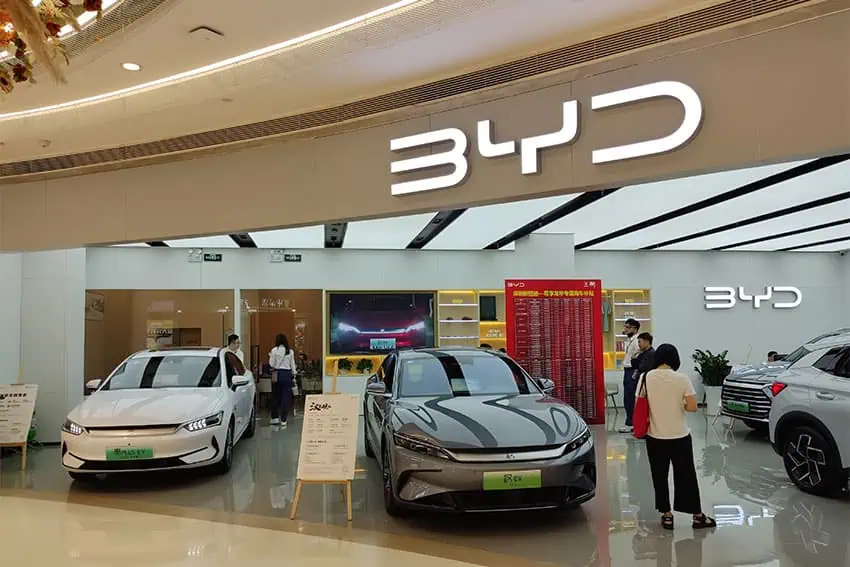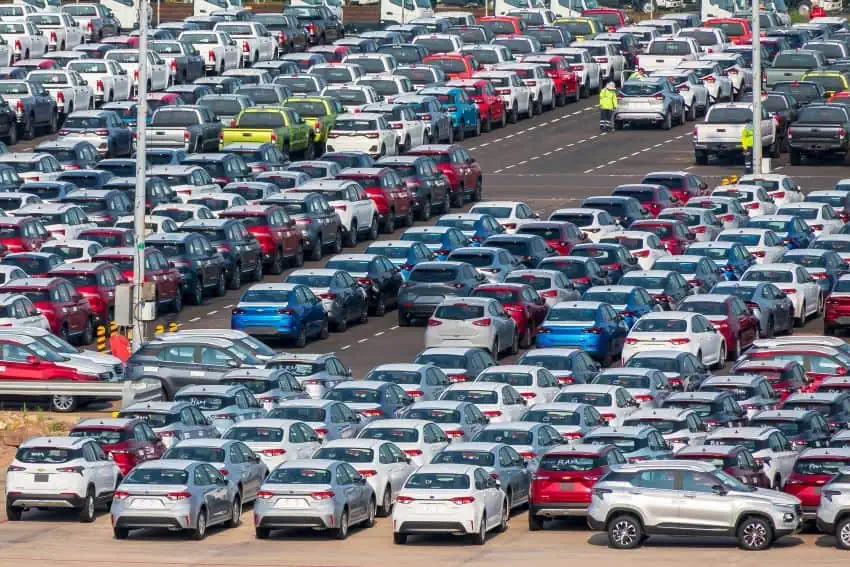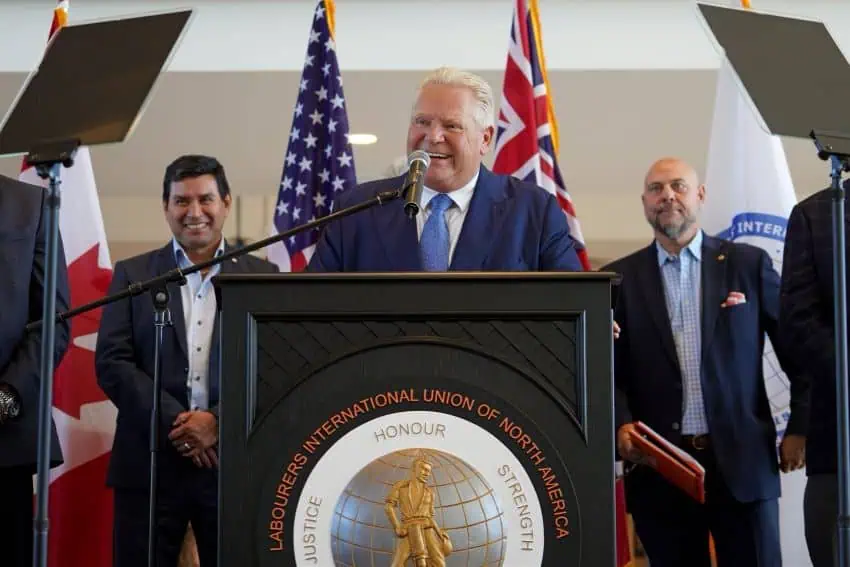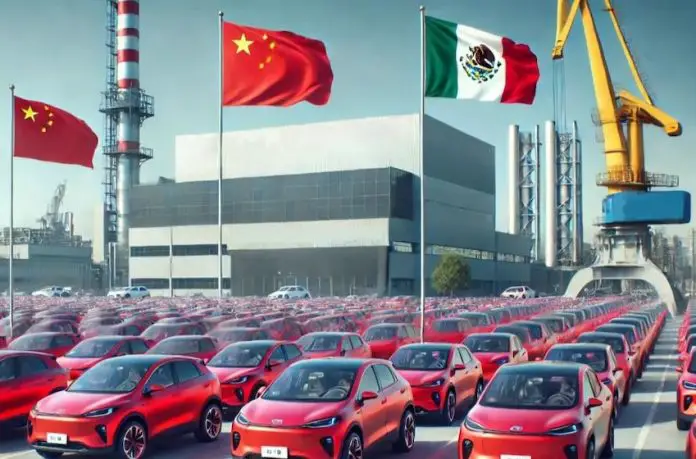The below article was written by Michael Dunne of Dunne Insights.
Mexico finds itself, quite suddenly, awash in Chinese cars. Hundreds of thousands of them.
The United States and Canada look at the situation and wonder: What exactly is going on with our neighbor to the south, our trusted partner in the USMCA?

Now imagine for a moment that you have been appointed to be the independent judge and jury.
Do you find Mexico:
A. Guilty — Mexico is secretly building ties with China.
B. Innocent — Mexico was blindsided.
or
C. It’s Messy — Mexico was an unwitting accomplice.
Before delivering a verdict you say you need more facts.
Here’s how the events have unfolded:
Back in 2020, Mexico decided to open the door wider to imports from China. A decree dropped import tariffs on cars from 20% to 0%. The idea was to give some Mexican car buyers access to low-cost electric vehicles (EVs).
Pretty soon a small stream of affordable cars from companies like Chery, Great Wall and MG arrived on Mexican shores.
No harm, no foul.
But then, the numbers began to jump. Today, a tsunami of Chinese cars and trucks is pouring into Mexico — and flying out of showrooms.

The P.R.C. will ship close to 500,000 vehicles to Mexico this year. China has blown past the United States to become Mexico’s number one supplier of cars.
One of every three new cars sold in Mexico this year will be built in China. That’s up from just 4% in 2020.
Mexico’s leaders appear to be frozen in stunned disbelief.
“I just don’t think Mexico was prepared for China’s scale and speed,” Travis Bembenek, CEO of Mexico News Daily, told me last week.
Mr. Bembenek, who has been doing business in Mexico for more than 30 years, knows his adopted country well. He is probably right.
And yet, the Mexican government seems strangely slow to counter the flood of Chinese imports. In fact, the Chinese market momentum seems to be getting stronger by the month.

BYD: Big, bold plans
Take Berkshire Hathaway-invested BYD, for example. China’s No. 1 automaker just entered Mexico in 2023.
The company is on track to sell 50,000 cars in Mexico this year. And BYD de Mexico CEO Jorge Vallejo says the company plans to double that to 100,000 in 2025.
That’s not all. Vallejo says that BYD will soon announce the location of a new BYD plant with the capacity to build 150,000 cars per year.
One veteran Mexican car dealer who just started selling BYDs told me he was ecstatic. “I’ve never sold so many cars in a quarter!”
BYD’s numbers look even more stunning when compared with industry giants like Toyota. It took the world’s largest automaker 22 years before it achieved 100,000 sales in Mexico in a single year.
BYD plans to get there in just 36 months. As my teenage daughter, Aurelia, likes to say: Wait, what?
Mexico’s own export machine
At the same time that Mexico is spending billions on cars imported from China, the country is also exporting a record number of vehicles to the United States.
In 2023, Mexico shipped a record 2.2 million cars to the U.S. It is a lucrative business for Mexico that also employs tens of thousands.

Mexico is also home to a strong and vibrant parts industry.
It is natural to wonder: Why would Mexico import so many cars from China when the country is working hard to build its own export-oriented industry?
That does not make sense.
Trade sweats
China’s surge in investment south of the border has given North American leaders those middle-of-the-night sweats. Mexico is the canary in the coal mine.
Earlier this year, the Biden administration imposed 100% tariffs on Chinese imports. And President-elect Trump has said that he will absolutely block any efforts to bring Chinese cars into the U.S. via Mexico.
In October, the Department of Commerce added new regulations to ban cars with Chinese hardware or software from being sold in America.
Trump’s declaration
American politicians and industrial leaders are beginning to complain out loud that Mexico may be a less than totally reliable partner.
On November 7th, just two days after the election, President-elect Trump made clear his displeasure:
“I’m going to inform her [President Sheinbaum] on day one that if they do not stop this onslaught of criminals and drugs coming into our country, I am going to immediately impose a 25% tariff on everything they send to the United States of America.”
Trump is not alone in his fury. Last week Doug Ford, the Premier of Ontario, Canada, recommended potentially removing Mexico from the USMCA.
Ford said Mexico should “at the very least” match U.S. and Canadian tariffs on Chinese imports, or “they shouldn’t have a seat at the table or enjoy access to the largest economy in the world.”

When four is a crowd
Tensions are building. The U.S. and Canada are not happy. China is quietly delighted. Mexico is under pressure to act.
Look for Mexico to increase tariffs on Chinese cars. Soon. Car exports to America are simply too crucial to the Mexican economy.
The 0% decree elapsed in September, so now Chinese cars face an import duty of 20%. That is hardly enough to stop the flow.
“Mexico will match the [100%] tariffs of the U.S. and Canada,” said Jorge Guajardo, former Mexican ambassador to China and now a partner at the DGA Group in Washington D.C., “precisely because Mexico wants to protect its own industry, its own supplier base. There is a strong auto parts lobby in Mexico pushing for higher tariffs right now.”
That happened, now what?
Mexico opened the door. Chinese automakers flew in. The U.S. and Canada got nervous: Is Mexico complicit or naive, they wondered?
The USMCA is definitely entering new territory. Much remains up in the air.
• What happens, for example, if Leapmotor International, the 51/49 JV between Stellantis and Leapmotor, starts building cars in Mexico?
• How will states like California react when some of the nearly one million Chinese cars now running on Mexican roads find their way north across the border? (I already see an occasional China-built car with Mexican plates rolling on San Diego highways)
Things can get complicated in a hurry.
Amidst all the uncertainty, one thing is clear: China successfully poked the USMCA. It won’t be the last time.
That’s the verdict.
Michael Dunne is an entrepreneur, author and keynote speaker. In 2018, Dunne founded Dunne Insights to deliver world-class advisory services on global electric and autonomous vehicle markets. Subscribe to his newsletter at newsletter.dunneinsights.com.
